National Assembly Delegate Huynh Thi Phuc (Ba Ria - Vung Tau delegation) requested to clarify the regulations related to the database, information security in the national population database, the identity database and has identified it as the only database of the State that has been systematically invested by the Government. The infrastructure and software system are managed and supervised by a team of experts in information technology and network security. Information retrieval is carried out according to a strict network security control process, ensuring information security and safety.
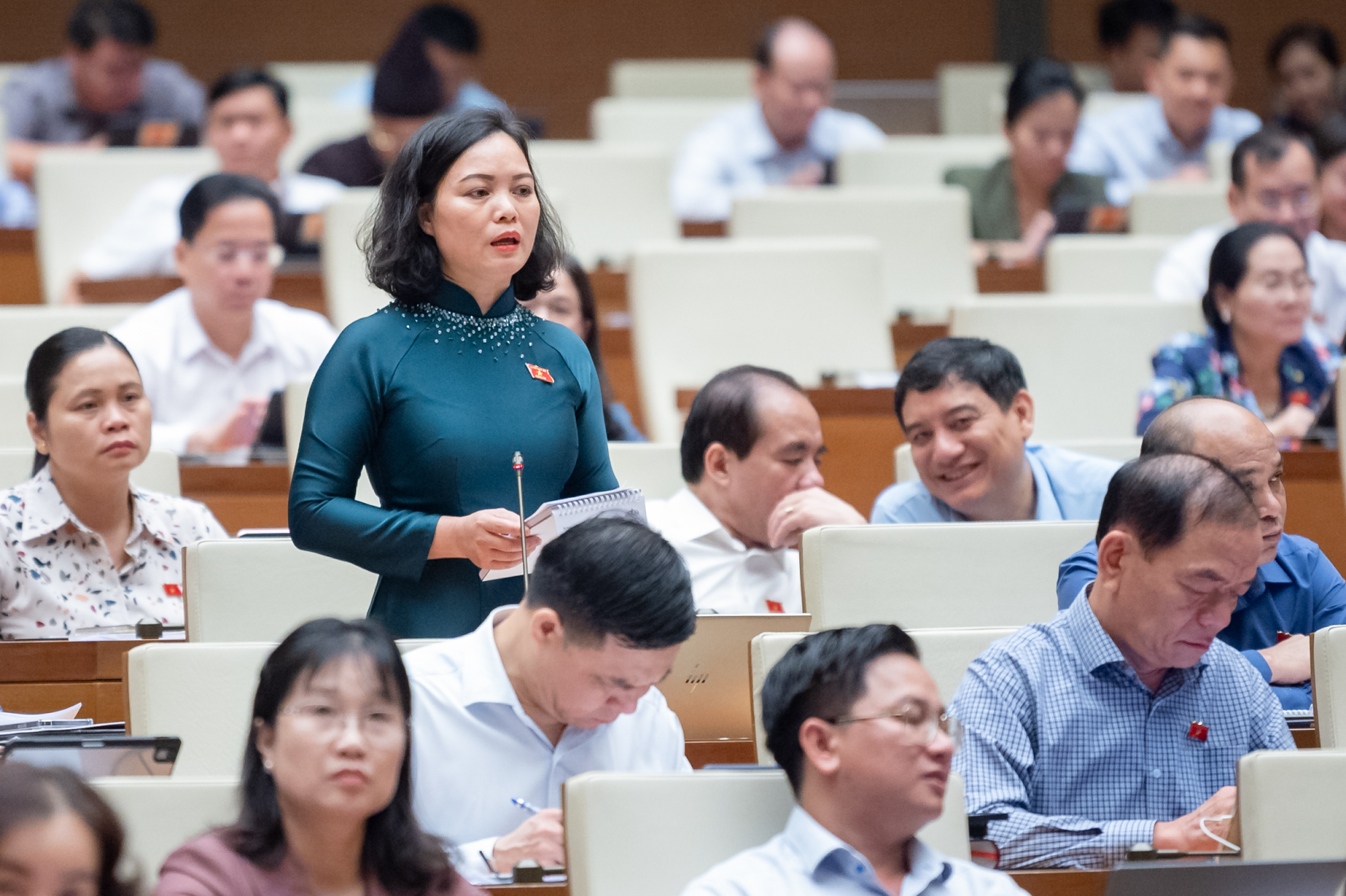
Delegate Huynh Thi Phuc (Ba Ria - Vung Tau delegation) participated in the discussion.
Agreeing with the above viewpoint, National Assembly Delegate Vo Manh Son (Thanh Hoa delegation) emphasized that the amendment of the 2014 Citizen Identification Law into the 2023 Citizen Identification Law is a step to innovate population management, ensure human rights, citizen rights, enhance the application of science and technology, improve the efficiency and value of the national population database and state management, contributing to improving the quality of life of citizens and national digital transformation. To continue to perfect the draft law, the Delegate proposed to add the following information to Article 9 of the draft law: Social insurance book, health insurance card, driver's license, documents proving the right to use, property ownership, and issued household registration papers. The purpose of the addition is to fully update citizen information in the national population database to effectively implement population management.
Regarding the opinion that the Government should not be assigned to regulate other information shared from the national database and specialized databases but should be regulated in the law to ensure citizens' rights, Delegate Vo Manh Son agreed with the opinion to keep this content as the draft law submitted by the Government. Assigning the Government to regulate in detail other information updated in the national database on population not only ensures the stability of the draft law but also has flexibility, meets the requirements of digital transformation and the need to collect and update information in each period, and is consistent with the provisions of Point d, Clause 3, Article 40 of the Law on Electronic Transactions.
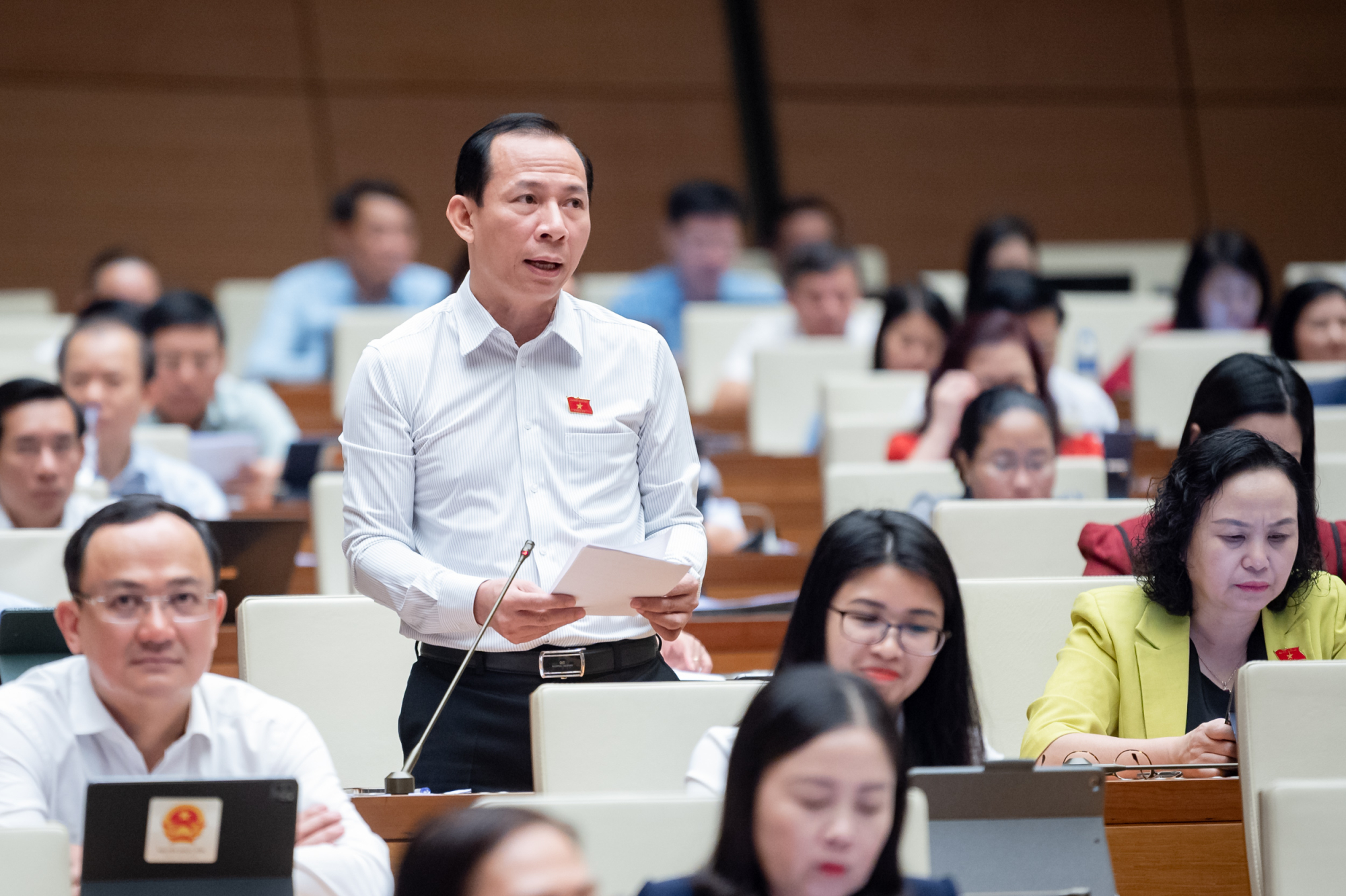
National Assembly Delegate Vo Manh Son (Thanh Hoa delegation) gave his opinion on the draft Law on Identification.
In Clause 12, Article 9 of the draft law regulating personal information in the national population database, including blood type, Delegate Pham Thi Kieu (Dak Nong delegation) requested the drafting agency to conduct further research because such a regulation would greatly affect personal privacy and have other negative effects if this personal information were made public; at the same time, this content is also inconsistent with the regulation in Point b, Clause 1, Article 37 of the 2020 Law on Residence. Blood type when citizens request to update and present the conclusion of the test to determine that person's blood type. Accordingly, the law on residence does not require citizens to update their blood type to the national population database system. In case a citizen requests to update and present the conclusion of the test to determine that person's blood type, the competent authority will update according to the citizen's request. Such a regulation will be more humane and scientific.
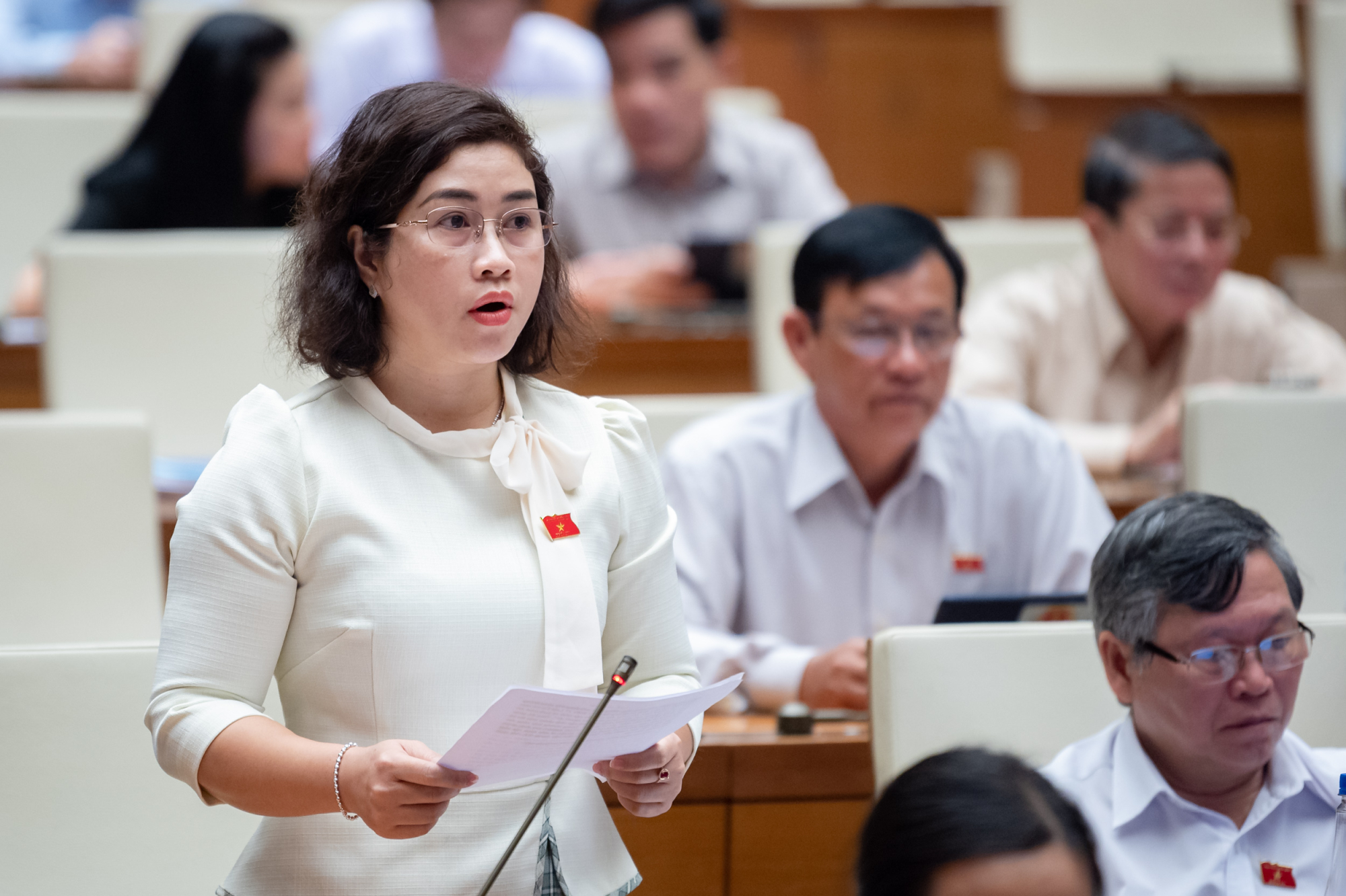
Delegate Pham Thi Kieu (Dak Nong delegation) spoke.
Commenting on this issue, Delegate Nguyen Dai Thang (Hung Yen delegation) said that in Clause 6, Article 10 of the draft law, it is stipulated that State agencies and socio-political organizations are allowed to exploit information in the national population database. The information in the national population database is very broad, including information related to personal secrets and private lives of citizens. On the other hand, agencies and organizations have different functions and tasks, leading to different scopes and purposes of exploitation. Therefore, in order to avoid abuse and theft of information as well as protect citizens' personal secrets, the Delegate suggested that the agency in charge of drafting the study should have more specific regulations on the scope of information exploitation in the national population database that is allowed to be exploited and ensure the principle of conformity with the functions and tasks of each agency and unit, and assign the Government to specify the implementation of this content.
Regarding the regulations on integrating information into the electronic identification account, the draft law adds regulations on integrating some stable information that is frequently used by citizens. In addition to the information in the identification database into the citizen identification card, the citizen identification card is valid for providing information about citizens and is equivalent to presenting documents issued by competent authorities and has information printed or integrated into the citizen identification card to help reduce paperwork for citizens, facilitating citizens in performing civil transactions.
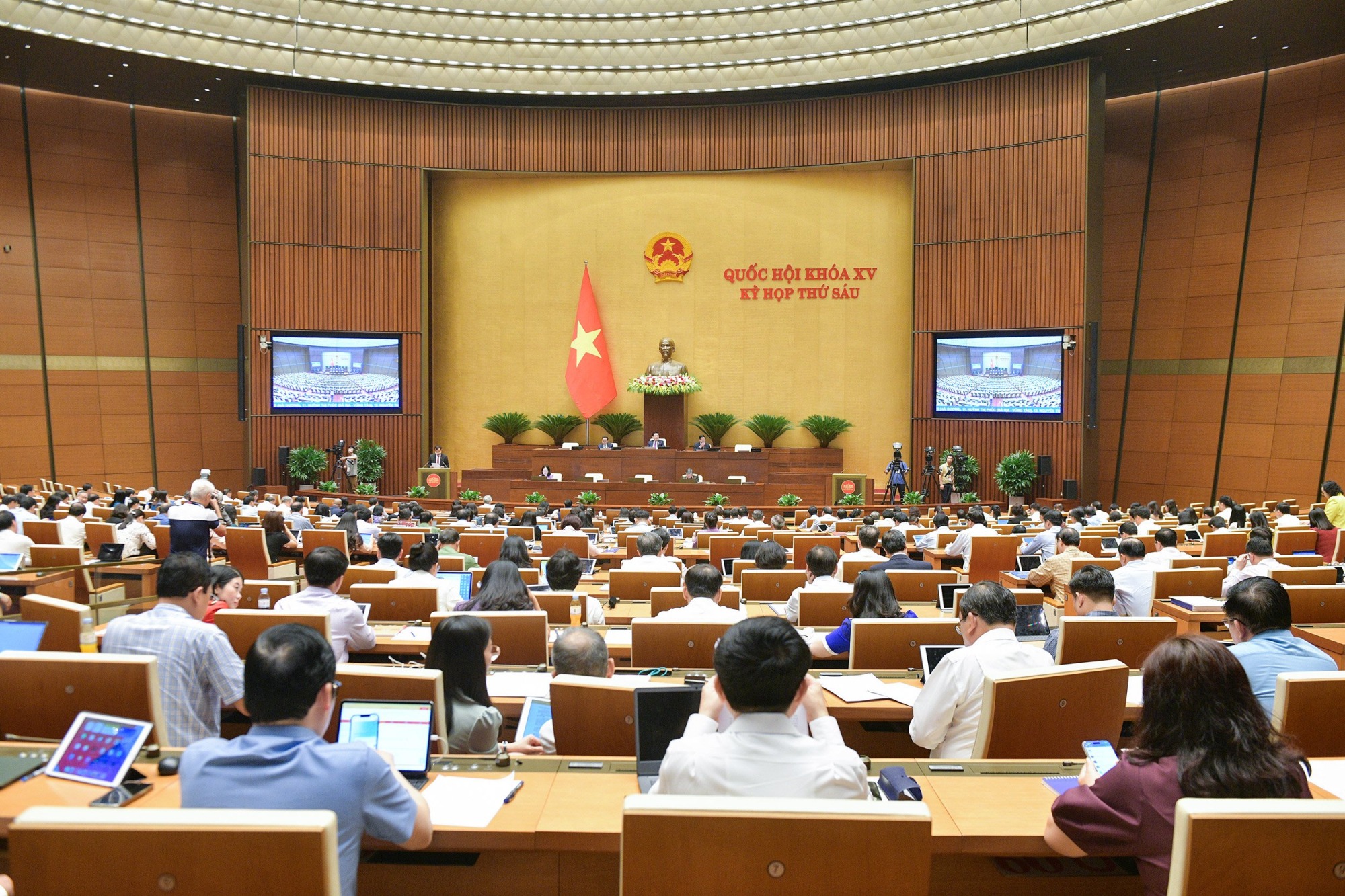
Overview of the meeting.
Implement digital transformation, reform administrative procedures, such as information on health insurance cards, social insurance books, driver's licenses, birth certificates, marriage certificates. However, Delegate Nguyen Dai Thang said that currently, many citizens still use two forms in parallel: electronic identification cards and personal papers. This can lead to a situation where the information on the ID card does not accurately reflect the status and legal status of the original papers.
To overcome this problem, the Delegate proposed that there should be solutions to fully and promptly integrate, connect and confirm the legality of information into the ID card and electronic identification account to serve people conveniently in performing administrative transactions, responding to digital transformation, standardizing data, ensuring information security and safety for people.
Source



![[Photo] Ha Giang: Many key projects under construction during the holiday season](https://vstatic.vietnam.vn/vietnam/resource/IMAGE/2025/5/1/8b8d87a9bd9b4d279bf5c1f71c030dec)

![[Photo] Binh Thuan organizes many special festivals on the occasion of April 30 and May 1](https://vstatic.vietnam.vn/vietnam/resource/IMAGE/2025/5/1/5180af1d979642468ef6a3a9755d8d51)











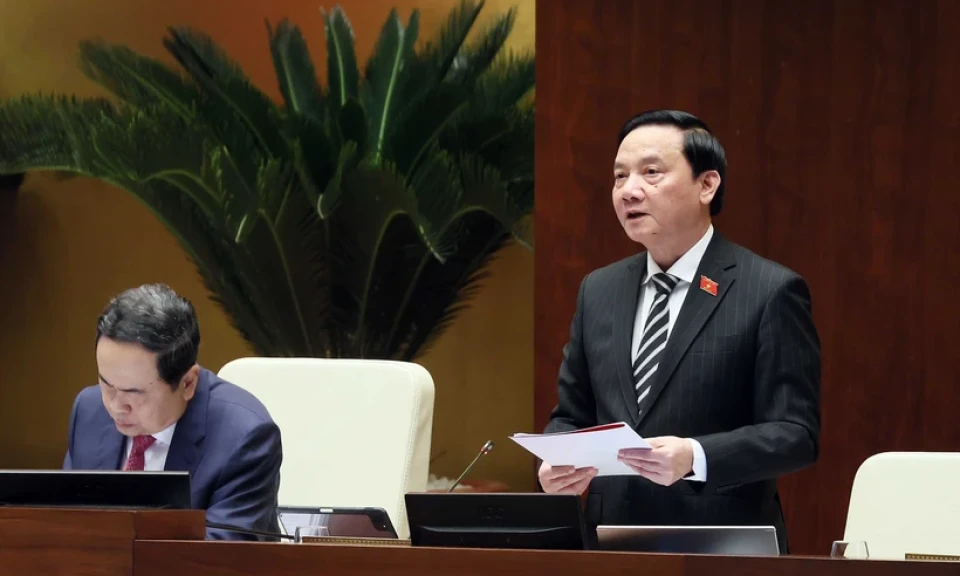



















![[Photo] Feast your eyes on images of parades and marching groups seen from above](https://vstatic.vietnam.vn/vietnam/resource/IMAGE/2025/4/30/3525302266124e69819126aa93c41092)































































Comment (0)